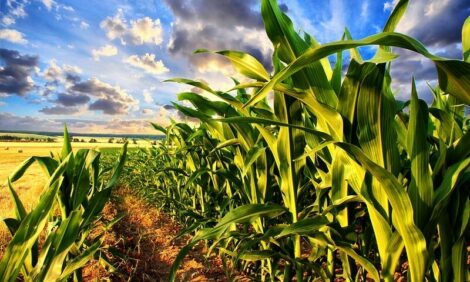



ARS Teams Up to Help Farmers in Jordan
JORDAN - Agricultural Research Service (ARS) scientists and cooperators in Jordan have teamed up to develop ways to better manage poultry litter and to make the most efficient use of water in crop production.Agricultural Research Service (ARS) scientists and cooperators in Jordan have teamed up to develop ways to better manage poultry litter and to make the most efficient use of water in crop production.
One collaboration between ARS and Jordan has led to installation of a research instrument known as a "weighing lysimeter," an underground device that measures how much water plants use. Building on knowledge gained from 59 other lysimeter installations, ARS soil scientist Steve Evett in Bushland, Texas, designed and collaborated in building this lysimeter -the most advanced yet -for Jordan. It was placed in a research field where, in 2008, sweet corn was the first crop tested.
Dr Evett predicts a great yield of knowledge due to the lysimeter's ability to very accurately measure plants' water use when that use occurs, and in terms of how plants respond to weather changes. With the information from the lysimeter and a measure of how much ground is covered by each crop's leafy canopy, combined with local weather data, scientists can tell Jordanian farmers how much water each crop will need in this arid and water-scarce region, according to Evett.
In other research, research leader Matt Smith and microbiologist Walter Mulbry at the ARS Environmental Management and Byproduct Utilization Laboratory in Beltsville, Maryland, visited Amman, Jordan, to help determine which practices would best manage large quantities of poultry litter. Training programs on composting were developed to increase soil organic matter, increase water retention, and decrease purchased fertilizer use.
During their first visit to Jordan, Smith and Mulbry went to six farms to conduct on-the-ground fact-finding in preparation for upcoming training programs. They found that the Jarash Valley area of Jordan has intense production of poultry and olives. The researchers obtained details about poultry production and determined whether other resources, such as olive tree clippings, would be available for use in composting the litter.
Mr Mulbry set up compost piles for further study and conducted workshops to equip farmers and poultry producers in Jordan with the knowledge and tools necessary to solve their agricultural problems and pass that information on to others.
Read more about cooperative research among ARS and international collaborators in the March 2009 issue of Agricultural Research magazine.











